Foraging Honey Bees on Flowers. The honey bees forage on any flowers that are available in their area, even small black jack flowers.
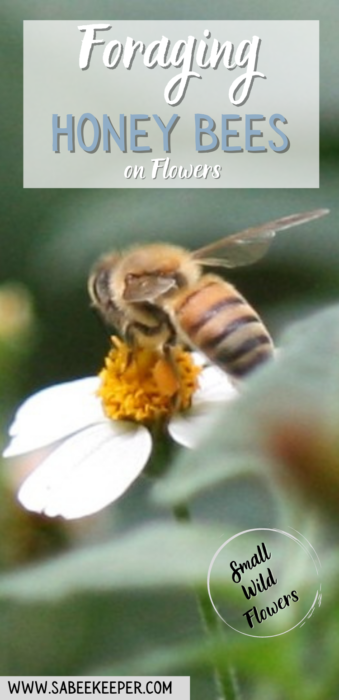
On a walk on sunny day, with my camera in hand I came across these black jack flowers. There were a few honey bees foraging on them, so tiny a flower. If there is nothing else in their vicinity then they work these flowers as well.
Flying from flower to flower seeking nectar and collecting pollen while doing it.
Foraging Honey bees on flowers and the gallery of photos.
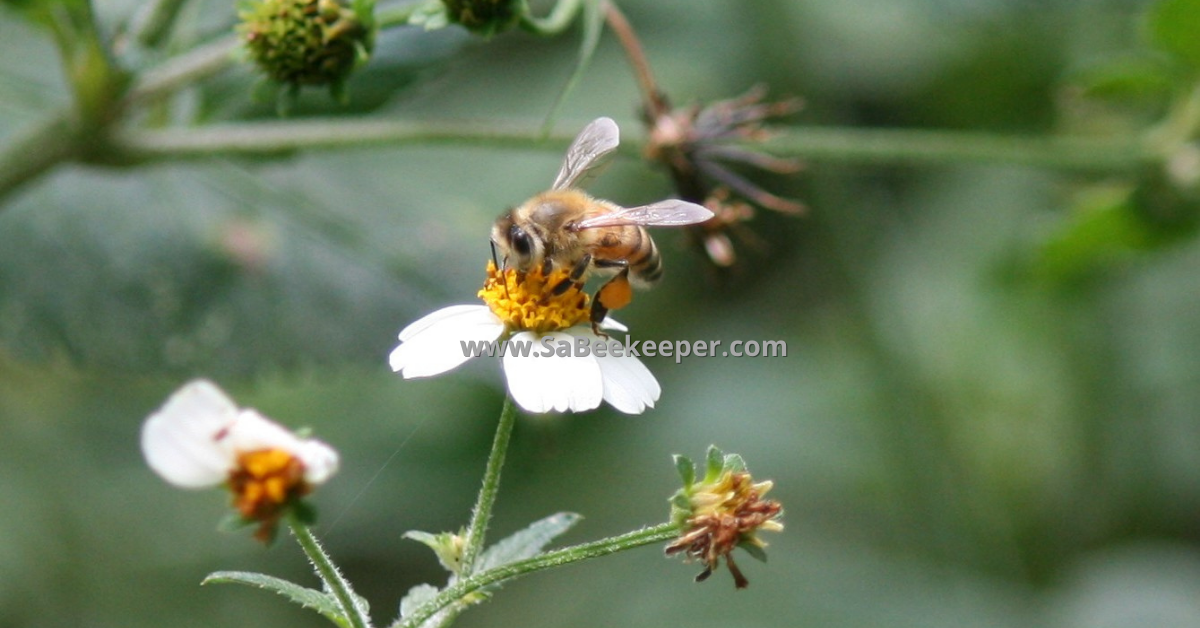
The pollen was collected as you can note on her hind legs in the pollen baskets.
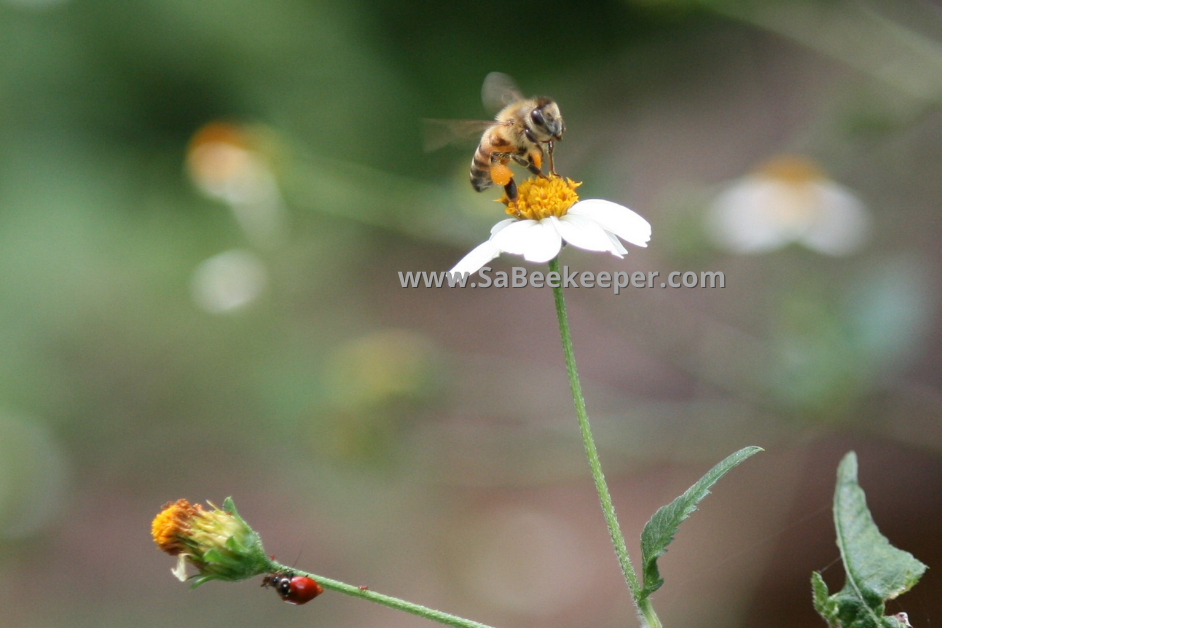
On closer inspection we found a little red Beatle to, on the stem of the black jack flower.
Bellows photo is showing you her taking of of the flower loaded with yellow pollen.
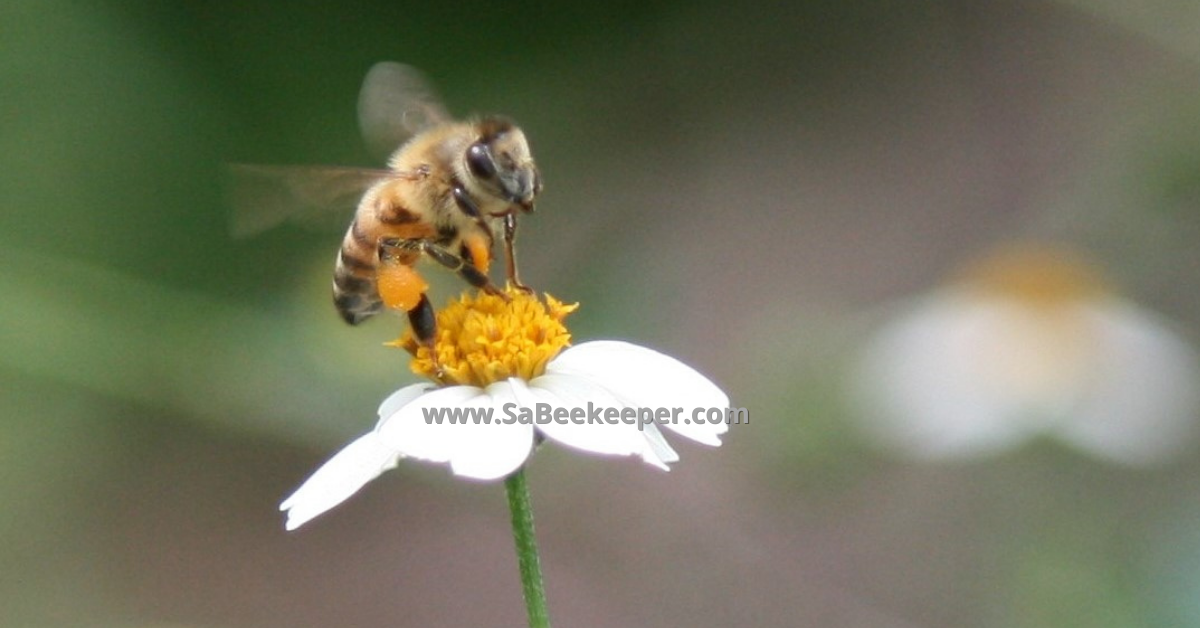
A close up of the Ecuadorian honey bee and her stripes.
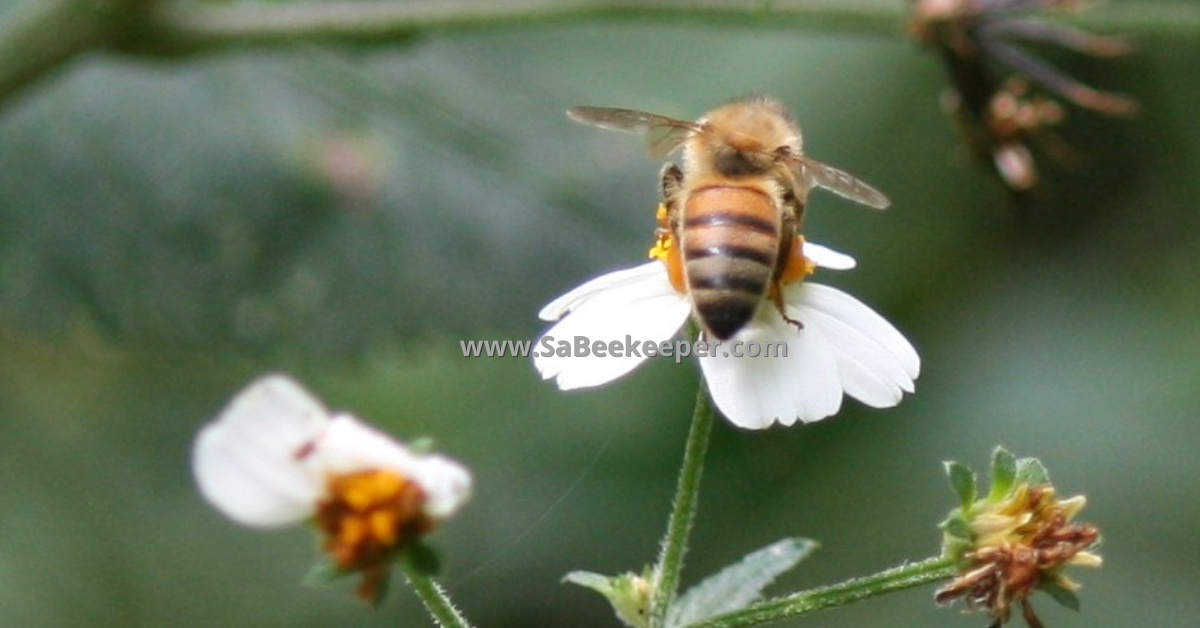
She is digging deep into this small flower for nectar.
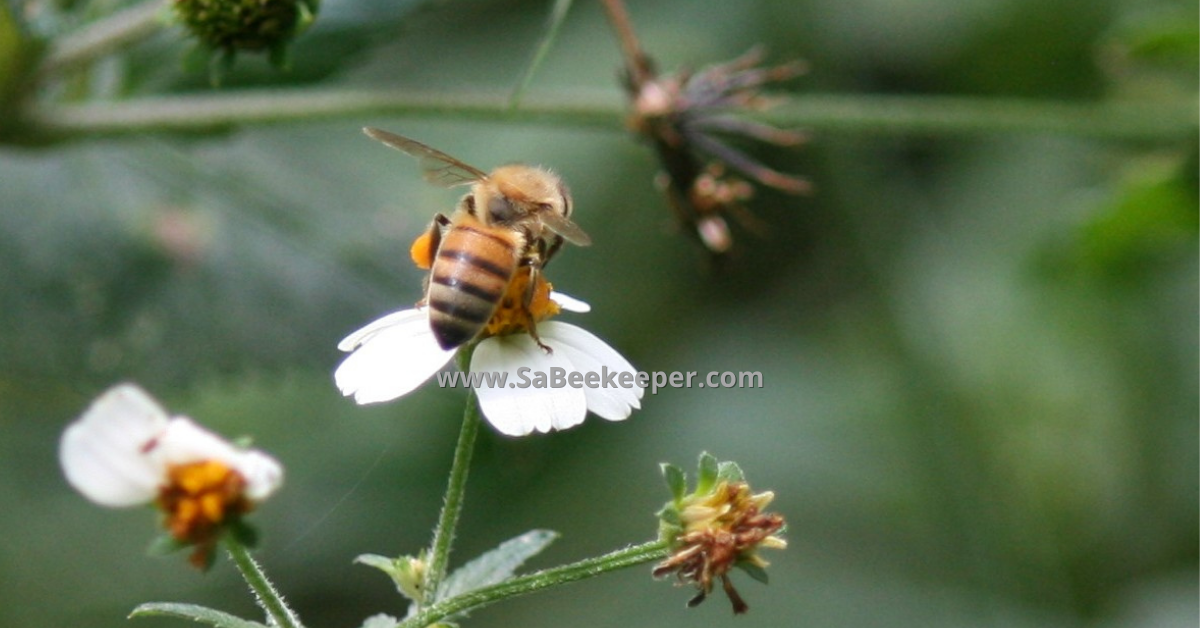
A close up of this bee on a small flower.
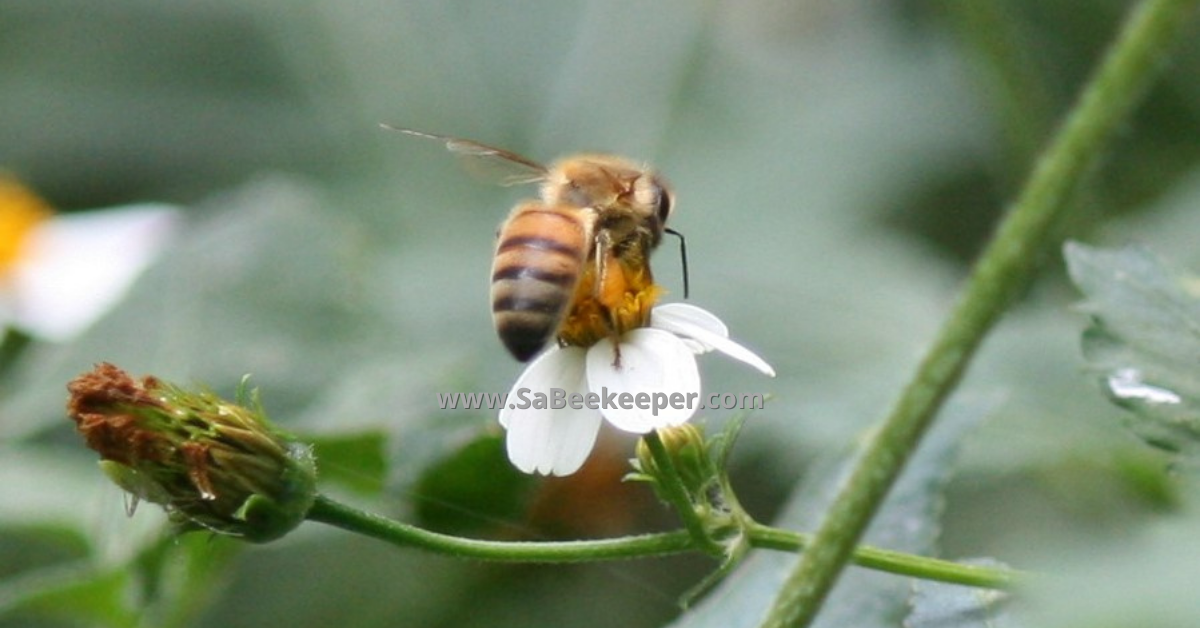
She was very busy flying from flower to flower searching and foraging. Lots of orange pollen in her pollen baskets on her legs. She will take this to the hive and store in the comb cells for food for the young. Learn more about this on Life on the Wax Comb.
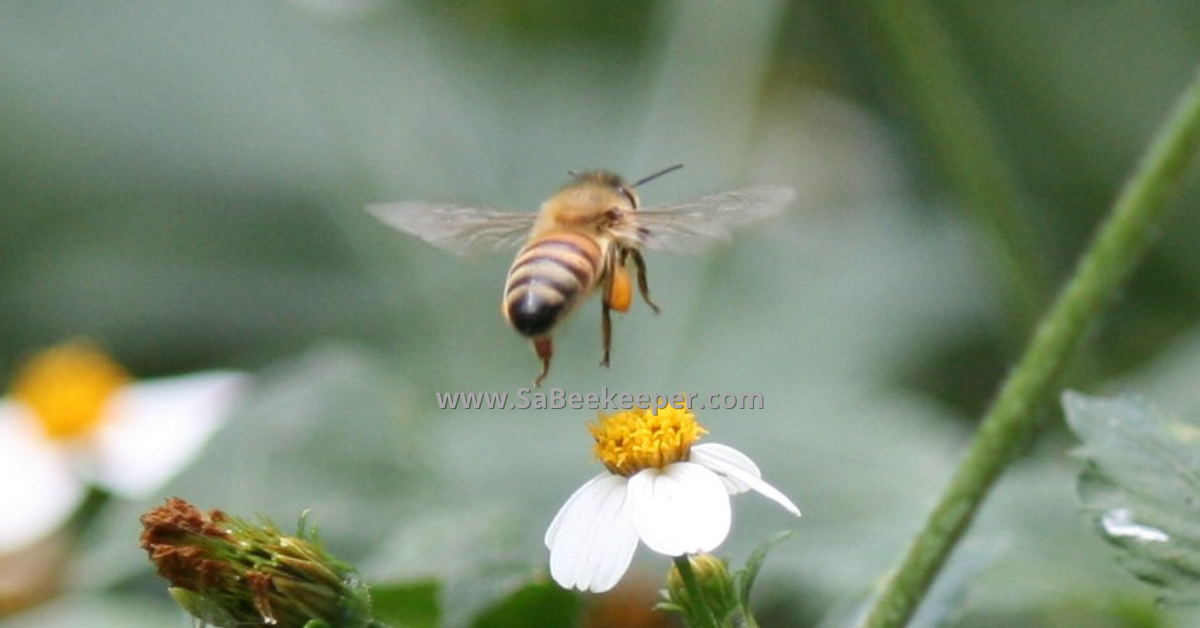
Another photo of her being very busy.
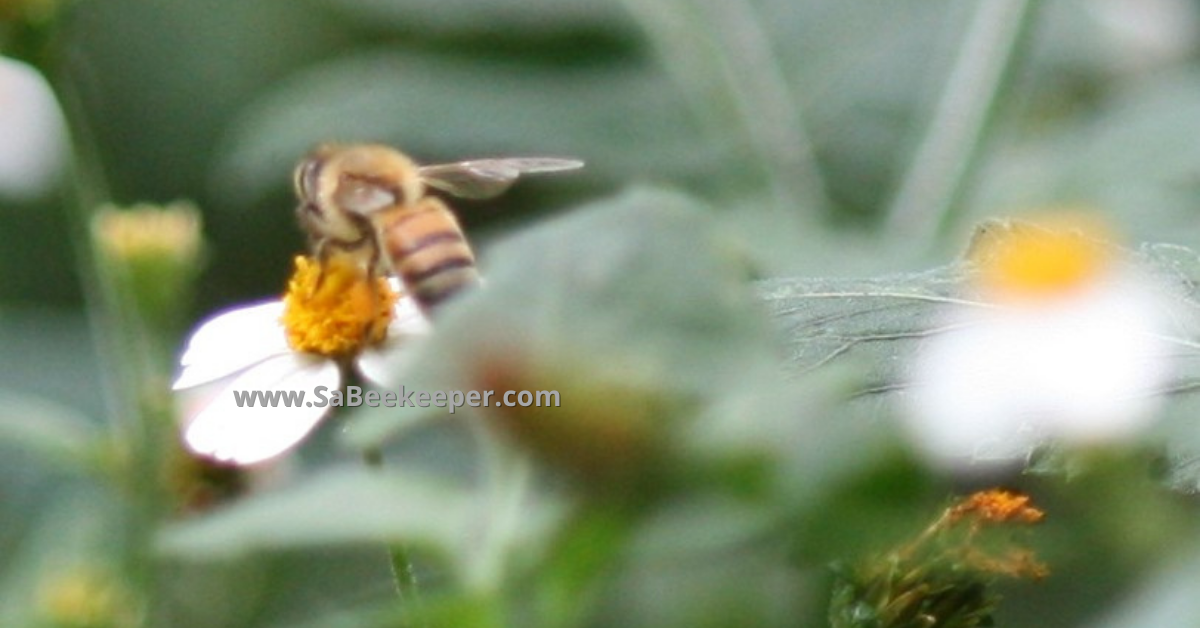
A pretty small white petaled flower with orange center and the bee foraging for nectar.
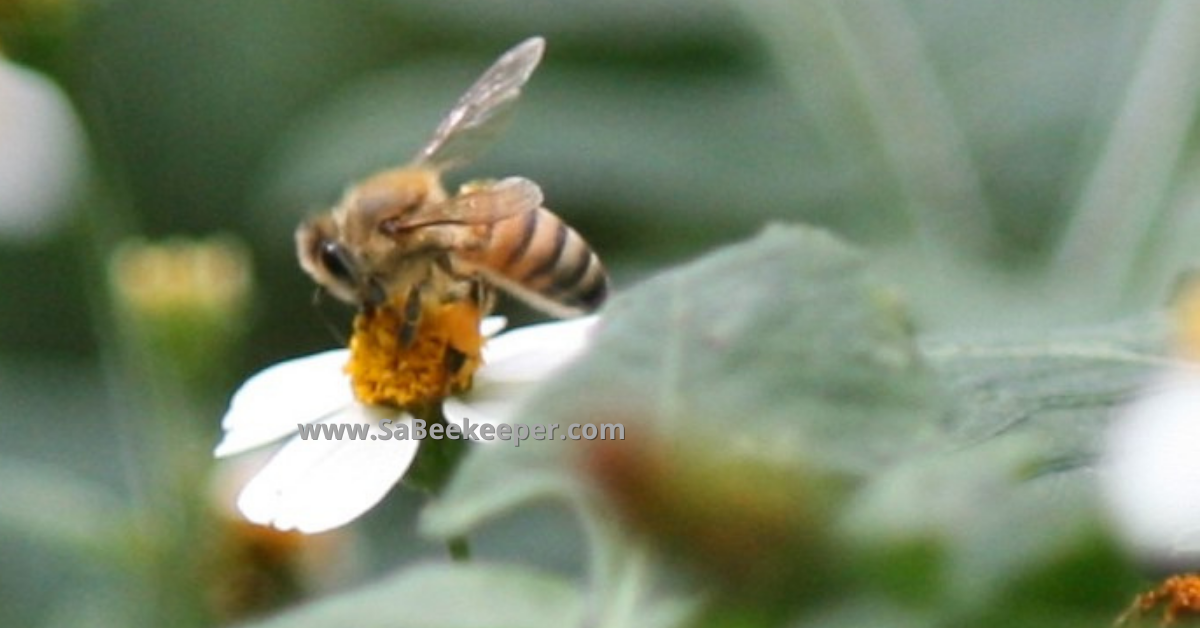
The pollen is casually rubbed off on the bees hairy legs. Off she goes again to another small flower.
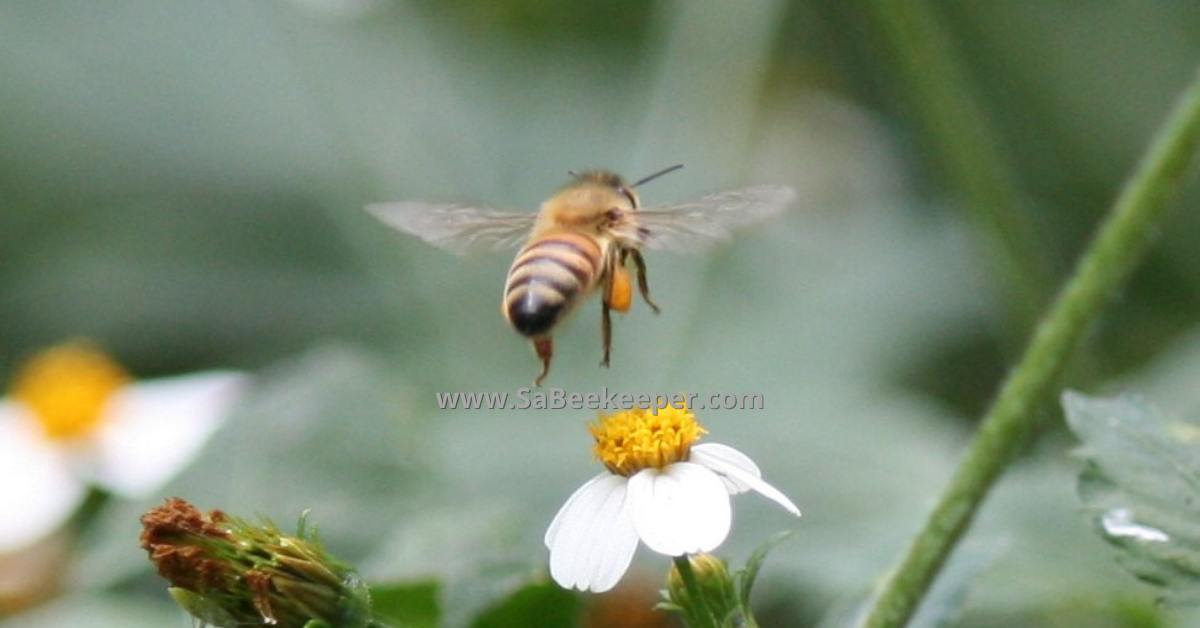
A full view of this very important honey bee, showing her compound eyes on the side of her face. The Antennas between her two large eyes, and wings ready to fly off. The stiped abdomen and legs clinging to the flower. Full pollen baskets that could hold more pollen.
Learn all about The Anatomy of a Honey bee.
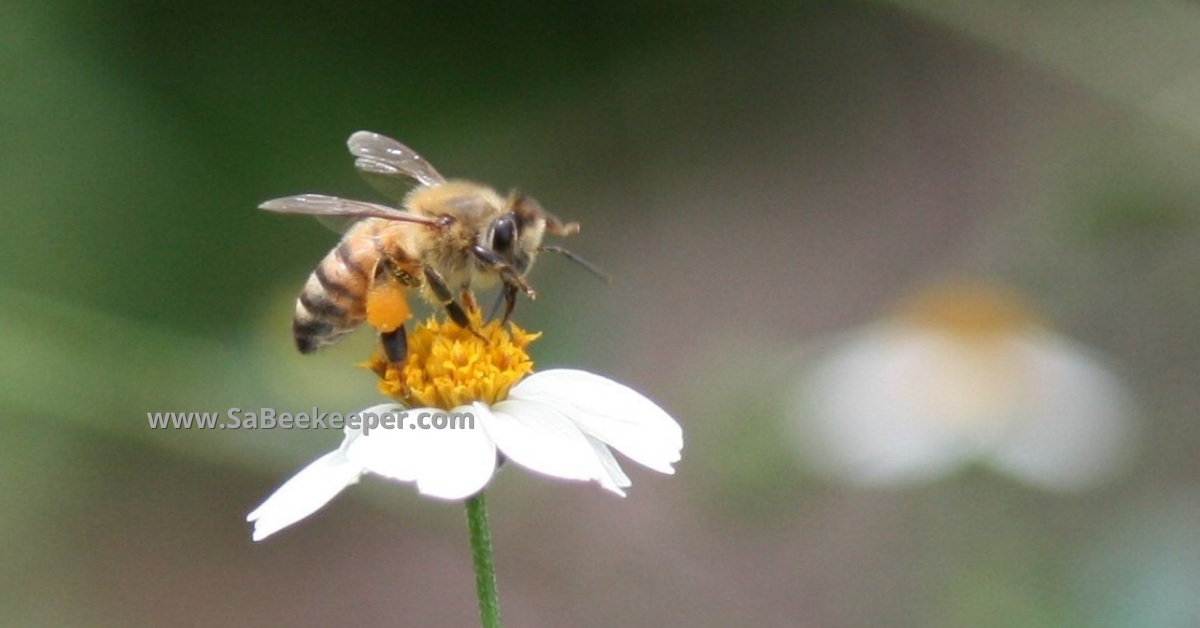
Another honey bee on a black jack flower foraging and as you notice the legs holding on and this one doesn’t have any pollen in her pollen baskets.
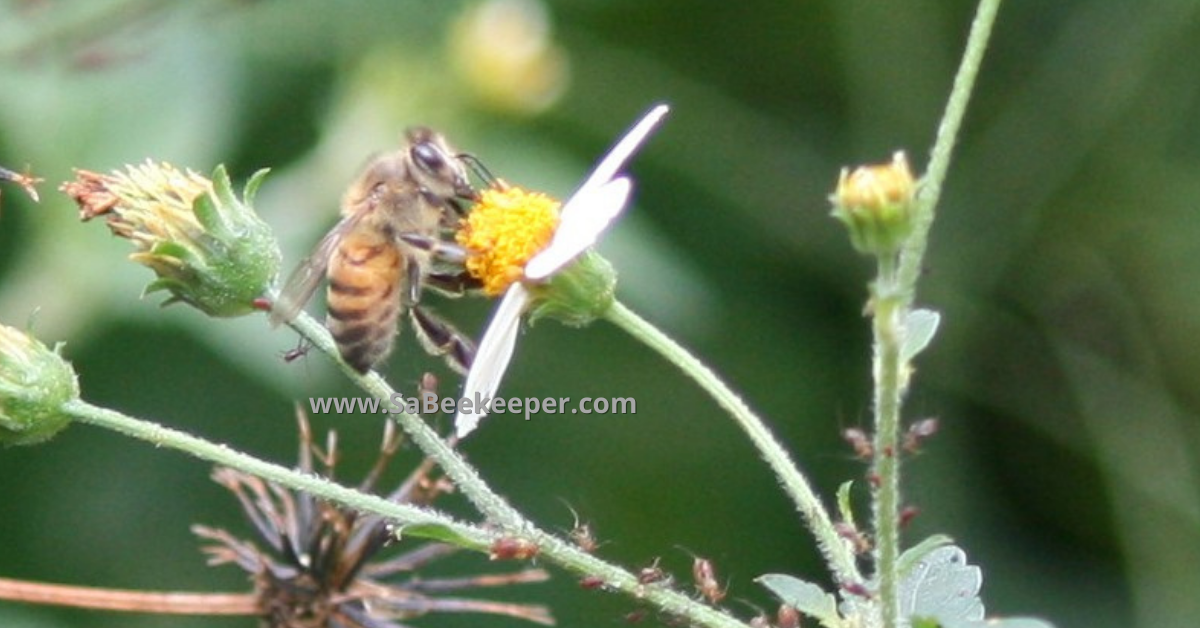
A few bees were busy on these black jack bushes foraging as there was not any other wild flowers in the area for food.
Bees are so important to our lives.
We need to provide flowers for them to obtain food and breed as they are the most important pollinators on the earth.
Save the Bees
Leave a Reply